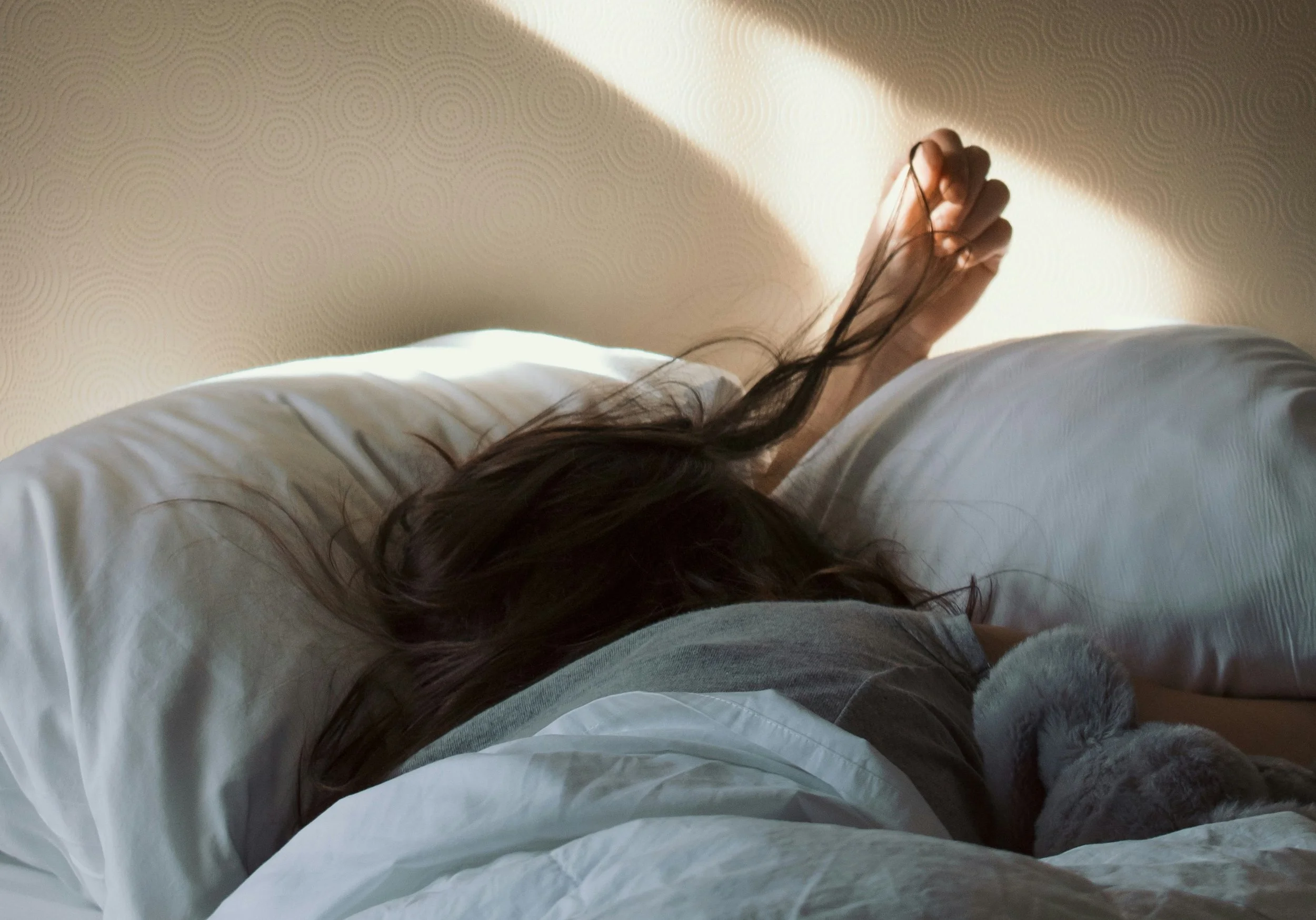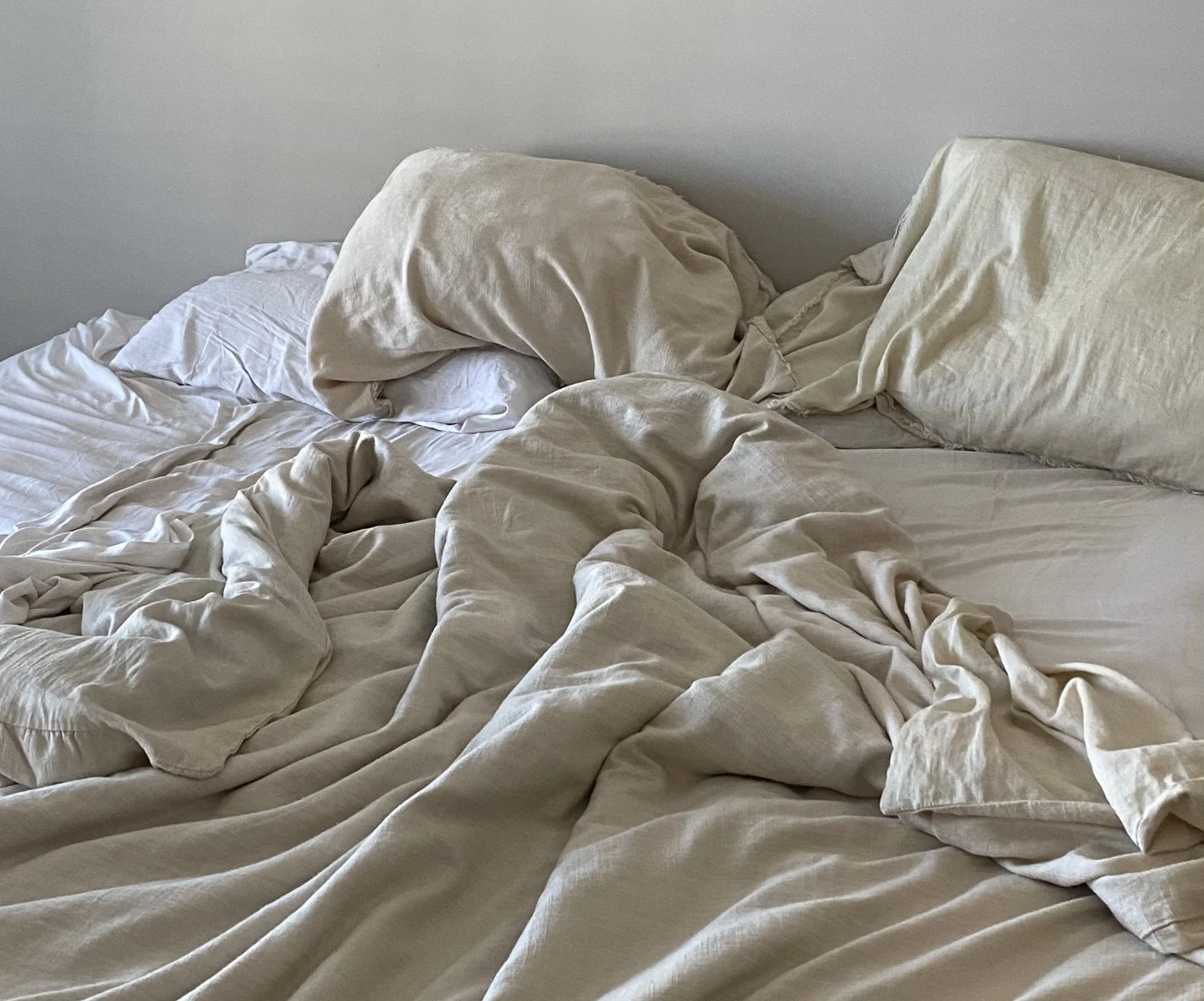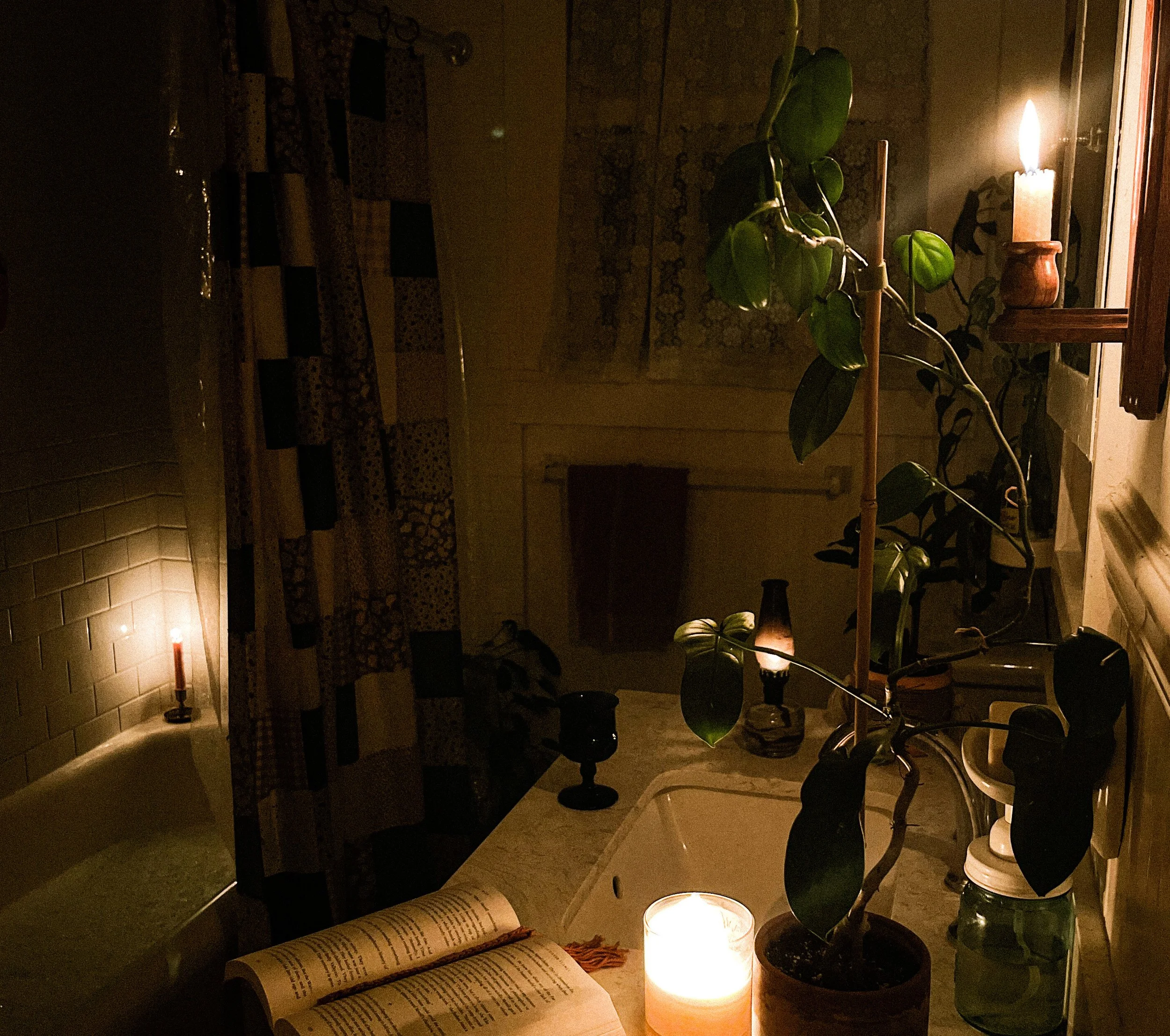Why You Can't Fall Asleep Before Midnight (And What Actually Helps)
You lie awake until 2am, exhausted but wired. Everyone says it's discipline. It's not. Your body is responding to conditions that make natural sleep impossible.
You're not broken for lying awake until 2am.
Modern life disrupts your body's natural melatonin production and circadian rhythm. Blue light until bedtime, constant nervous system activation, synthetic materials and environments, and lack of true darkness prevent the biological wind-down that used to happen naturally.
Restoring healthy sleep is not about discipline or supplements on their own. Healthy sleep is about addressing root causes. Here’s what that looks like.
the 2am problem
You know you should sleep by 11pm. You're exhausted. You go to bed at 10:30pm with the best intentions.
And then you lie there. Mind racing. Body wired. Watching the clock tick past 11pm, midnight, 1am.
By 2am you're googling "how to fall asleep fast" while the blue light from your phone guarantees you won't.
Everyone acts like this is a personal failing. Sleep hygiene articles tell you to "relax" and "clear your mind" as if you haven't tried that a thousand times. Your doctor offers prescription sleep aids that leave you groggy and dependent.
But your insomnia isn't a personal problem. Your body is responding to conditions that make natural sleep nearly impossible.
why your body stopped making melatonin
Your body knows how to sleep. It's been doing it since you were born. It’s not that you forgot how. Rather, modern life actively prevents the biological cascade that creates sleep.
Melatonin production requires darkness. Real darkness. Not "dim lighting" or "blue light filters." Your pineal gland needs pitch black to signal sleep time. But you're exposed to screens until you try to sleep. LED lights that mimic noon. Streetlights flooding your bedroom. Your body never gets the darkness signal.
Your nervous system needs completion. Activation followed by genuine rest. But you go from work stress to scrolling news to Netflix to bed without ever signaling "the day is over." Your system stays vigilant, waiting for the next demand.
Your body needs to discharge. Grounding, through contact with earth or natural materials. But you're insulated in synthetic fibers, on synthetic mattresses, in buildings that prevent any electrical connection to ground. Your system can't reset.
what sleep hygiene gets wrong
The sleep hygiene advice isn't wrong, exactly. But it is incomplete.
Cool room, dark space, consistent bedtime—these help. But they're treating symptoms, not causes. Like putting a bandaid on a wound that's still bleeding.
Sleep hygiene assumes your body just needs the right conditions and it'll remember how to sleep. But when your melatonin production has been disrupted for years, when your nervous system hasn't completed a stress cycle in months, when your body hasn't properly grounded in who knows how long—creating the "perfect sleep environment" isn't enough.
You need restoration, not just optimization.
restoring natural sleep rhythm
Restoration means working with your body's actual biology.
Darkness starts before bedtime. Sunset means reducing artificial light. Not eliminating it completely (you still need to live), but dimming everything. Shifting to warm, low lighting. If screens are necessary, blue light blockers aren't optional—they're essential. By 9pm, your environment should be telling your body "day is ending."
Your nervous system needs closure. The transition from day to rest requires ritual. Not optimization—ritual. This might be gentle stretching that signals "releasing the day." Sitting in darkness for even five minutes, letting your system realize nothing is chasing you.
Natural wind-down practices work with your biology. Herbal teas like chamomile, passionflower, or valerian support the nervous system's natural calming. Magnesium helps muscles relax and supports melatonin production. These drugs don’t force sleep—they support what your body is trying to do naturally.
Your sleep surface matters. Natural materials (cotton, linen, wool) let your body's electrical system discharge. Synthetic fabrics trap charge and heat. Your body needs this.
Grounding when possible. Feet on earth during the day. Even five minutes. Your body needs this electrical connection it's been denied.
the timeline
This won't fix overnight. You've been disrupting these rhythms for years. Your body needs time to remember.
Week one: You might feel worse before better. Your system is recalibrating. Keep going.
Week two: You'll notice falling asleep gets slightly easier. Maybe midnight instead of 2am. This is progress.
Week three to four: Your body starts anticipating the routine. Melatonin production begins returning to natural timing.
By week six: Most people are falling asleep between 10:30-11:30pm without lying awake for hours.
Some need longer. Especially if you've been on sleep medications or have years of disrupted sleep. Be patient with your body as it remembers.
when to consider support
If you've addressed all this and still can't sleep, natural support can help while your body restores its rhythm.
Melatonin supplements can temporarily support production while your pineal gland remembers how to make it naturally. Start low (0.5-1mg), take 30-60 minutes before desired sleep time. This scaffolds while you rebuild.
Magnesium glycinate supports both relaxation and melatonin production. Many people are deficient, especially if eating processed foods.
Herbal blends with valerian, passionflower, or California poppy calm the nervous system without sedating you.
But supplements work best alongside environmental changes, not instead of them. You can't (and shouldn’t) pill your way out of conditions that prevent sleep.
Your inability to fall asleep before midnight is not a personal failure, and it isn’t broken biology. What it is, is your body is responding rationally to conditions that destroy natural sleep rhythms.
The solution isn't more discipline or stronger sleep aids. Instead, it's creating conditions where your body can remember what it already knows: how to sleep.
Tomorrow night, start with darkness. Dim lights after sunset. Put screens away an hour before bed. Notice what your body does when it finally gets the signals it's been desperately waiting for.
Your body remembers how to sleep. You just need to stop preventing it from doing what it already knows.
quick wind-down ritual
8pm: Dim all lights, shift to warm tones
9pm: Screens off or blue blockers on
9:30pm: Herbal tea, gentle stretching
10pm: In bed, release the day (read a physical book, sit in stillness, let what passed dissolve)
10:30pm: Total darkness
Notice without judging. Your body will tell you what it needs.





